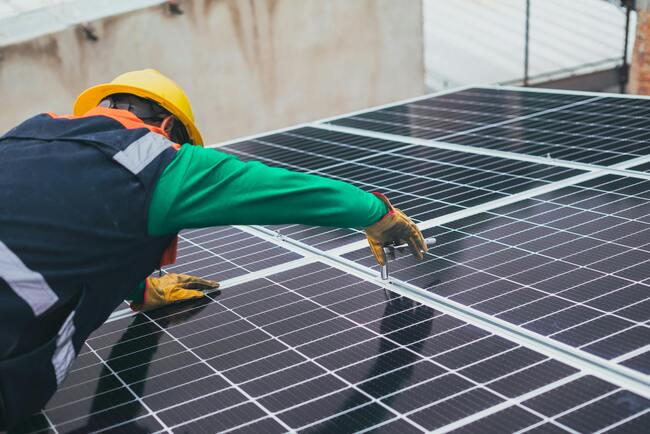New data reveals that 62% of Britons feel under-informed about renewable energy options, with many solar myths persisting.
Recent research finds that two-thirds of Britons would be more inclined to switch to renewable energy if the process was more clearly explained. One-third mistakenly believe that the UK’s often-cloudy weather hinders solar panel effectiveness, even though evidence shows otherwise. Findings from Solar Together, an expert in energy transition, highlight that two-thirds of Britons agree the public is not well-informed about renewable solutions, with an equal percentage stating they would switch to renewables if information were more accessible.
In response, Solar Together has debunked five common solar energy myths prevalent in the UK to aid those considering renewables:
- Nearly half believe it takes over 15 years to recoup the investment in solar panels, while the actual timeframe is between 6 and 10 years.
- One third think the UK’s cloud cover prevents solar panels from working effectively.
- Another third say solar panels aren’t useful in typical British winters.
- A third think installing solar panels is overly complicated.
- One in five doubt that solar panels reduce energy bills, even though the average annual saving can be as high as £500 per household.
With clocks recently adjusted for winter, more than one quarter (26%) say they become more aware of energy use during colder, darker months, and 22% report heightened environmental awareness. While UK winters may be colder than in other countries, solar panels rely on sunlight rather than heat. Surprisingly, they often perform better in lower temperatures, with peak efficiency achieved between 1C and 20C. Although cloudy days mean less direct sunlight, solar panels still generate a considerable amount of power and don’t stop working. Batteries can also store surplus energy for later use.
This study suggests that many are unaware of these solar energy facts, indicating a need for greater clarity on renewable energy’s role, particularly during the winter. The findings show that 62% of Britons agree there is limited understanding of home renewable solutions. Nearly half believe government messaging on renewables is overly complicated (46%), suggesting simpler communication could improve adoption. Additionally, 44% say clear information is hard to find, yet two-thirds would consider renewables if better resources were available.
The study also found that renewable energy is rarely discussed in family settings (42%), with 35% saying it isn’t taught enough in schools. Another 36% say it is seldom featured on television, and a quarter point to celebrities’ silence on the topic (24%).
George Frost, UK Country Manager at iChoosr, the firm behind Solar Together’s solar group-buying initiatives, said, “This study highlights the urgent need for better education and clearer communication about renewable energy in the UK. By making information more accessible and addressing common misconceptions, we can encourage more people to adopt renewable energy solutions and contribute to the UK’s net-zero goals.”
“It’s clear that a large proportion of the public finds existing messaging around renewables too complicated or confusing. This suggests we all need to work hard to demystify the perceived complexity while spreading the benefits of renewable energy to all corners of the UK.”
Since 2015, iChoosr has worked with councils through Solar Together to drive renewable adoption nationwide. Solar Together has enabled over 42,500 installations, expected to cut 680,000 tonnes of carbon emissions over 25 years.


